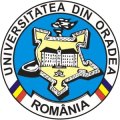Raising Awareness and Strengthening the Use of Mechanisms for Influencing the EU Decision-Making
2018-2021
The project aims to approach, from 11 to 14 years after Romania’s accession to the EU (and in the context of Romania’s Presidency of the Council of the European Union, during January - June 2019), the way in which Romania is exercising its role and place in the EU’s multilevel governance and, implicitly, in the EU decision-making process, and what it should be done in order that, in the future, to efficiently exercise them.
Therefore, the project concentrates on what University can do in this regard – as to prepare the students to assume an active role in the EU’s multilevel governance and in the EU decision-making process, in their domain of specialization; to raise awareness and to develop competences for the high-school pupils regarding the decision-making processes in the EU’s multilevel governance; to strengthen the efficient use of mechanisms for influencing the EU decision-making by the decision-makers from the local level, on European issues, with a local impact; on establishing partnership relations between the University and the public authorities (from different levels - local, regional, national) from Romania; and the involvement, in this process, of the actors from different levels and sectors. In the same time, it aims to develop partnerships and academic exchanges, regarding the project’s results, with universities from EU member countries and non-member states.
Objectives
The project’s main objectives are the following:
- the students – to acquire the knowledge, competences and abilities with regard to the process participation to/and of influencing of the EU decision-making, in their domain of specialization;
- active participation of the citizens and actors from different sectors (public, private, NGO) in influencing the EU decision-making process;
- the development of partnerships with different national and European stakeholders and the exportation of the project’s knowledge and experience regarding the process of influencing the EU decision-making, to the non-EU states.
The main activities, outputs and outcomes
The main activities of the project are:
- two new and innovative academic courses (at MA and BA levels, called “Shaping the influence of the EU policies, from different sectors” and “Influencing the EU decision-making: from local to European”) and the publication of a didactic material;
- an innovative intensive course titled “Knowledge, participation and influence of the EU decision-making”, designed for students who are less exposed/have never been exposed to the European studies domain;
- a training course titled “Governing the Local, Influencing the EU” addressed to the local counsellors and mayors from Bihor county – comprising municipalities and communes;
- a summer course titled “Y Learn & Y participate in the EU’s multilevel governance” – addressed to junior BA students from different faculties from the University of Oradea and to high-school pupils from Bihor county’s high-schools;
- an International Conference titled “Actors, mechanisms and levels of influence in the EU decision-making” and the publication of the conference volume.
The main outcomes of the project are:
- the improvement of the curricula with new topics on the EU’s multilevel governance and decision-making process;
- the design of courses for students, postgraduates and pupils that have not been previously exposed to the European studies domain;
- the increasing of the students’ (with different specialization backgrounds) understanding of the EU’s multilevel governance and of the EU decision-making process and the subsequent active participation to this process;
- the increasing of participation of the target-groups to the public debate on the EU issues and EU decision-making process; the improvement of the public policies’ formulation at European and national levels;
- the development of partnerships between the University and the relevant stakeholders from national and European levels, etc.
Beneficiaries
The project’s main impact on the direct and indirect beneficiaries is conceived to be the forming of active participants to the EU decision-making process – namely:
- the students with different specialization backgrounds;
- high school pupils;
- actors from different sectors (public, private, NGO) and levels (local, regional, national).





